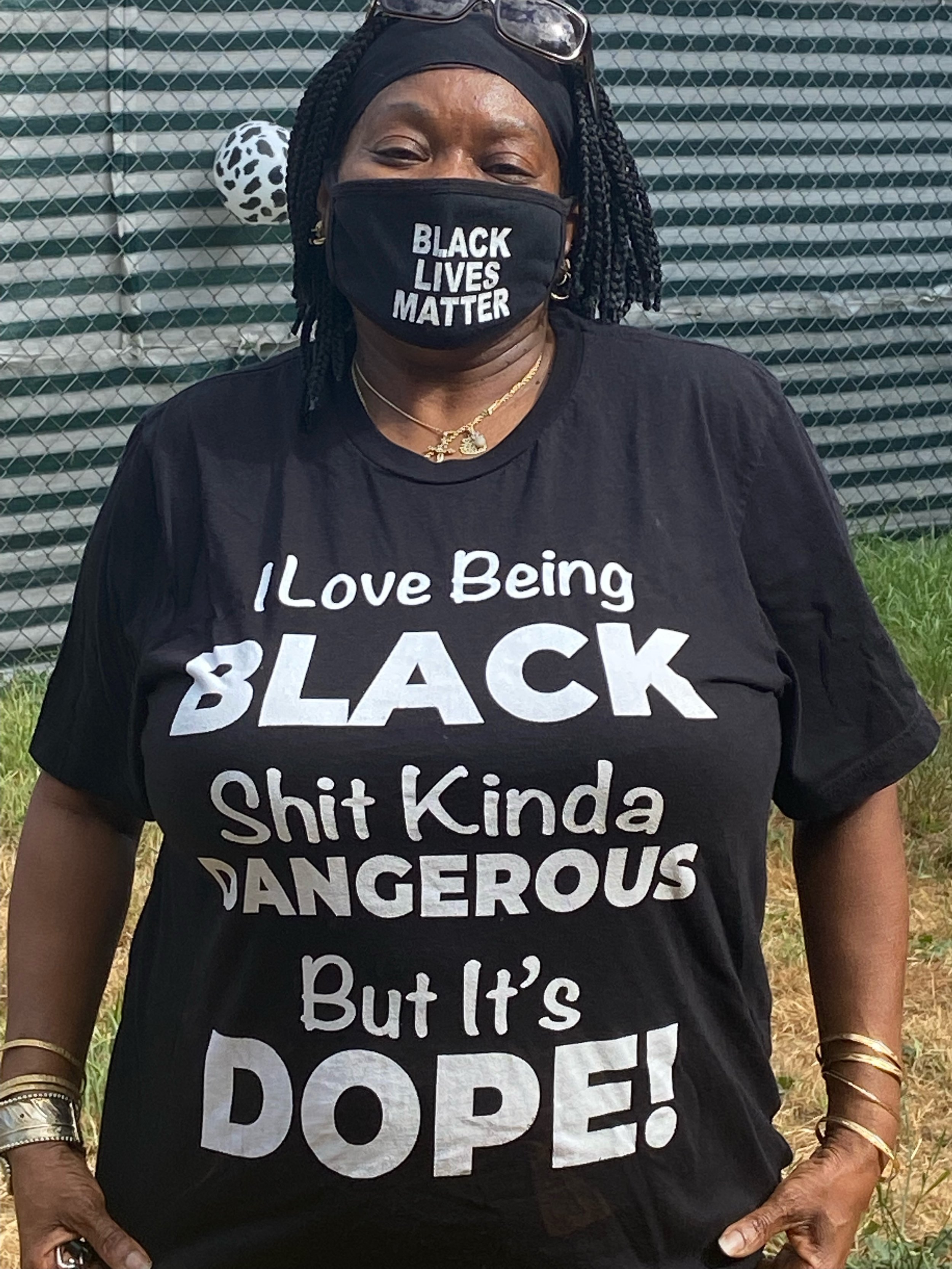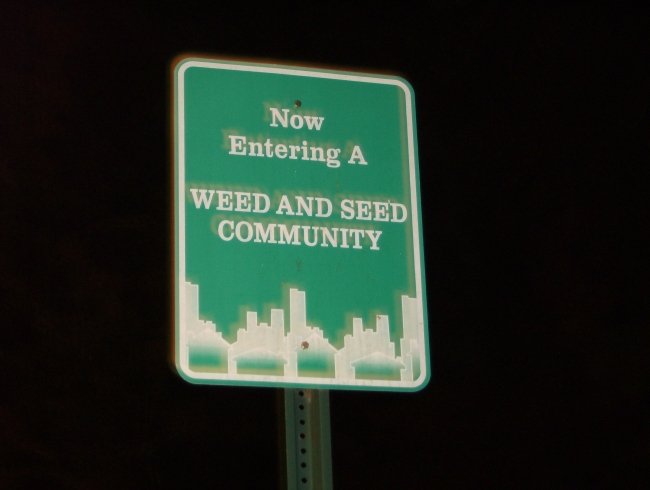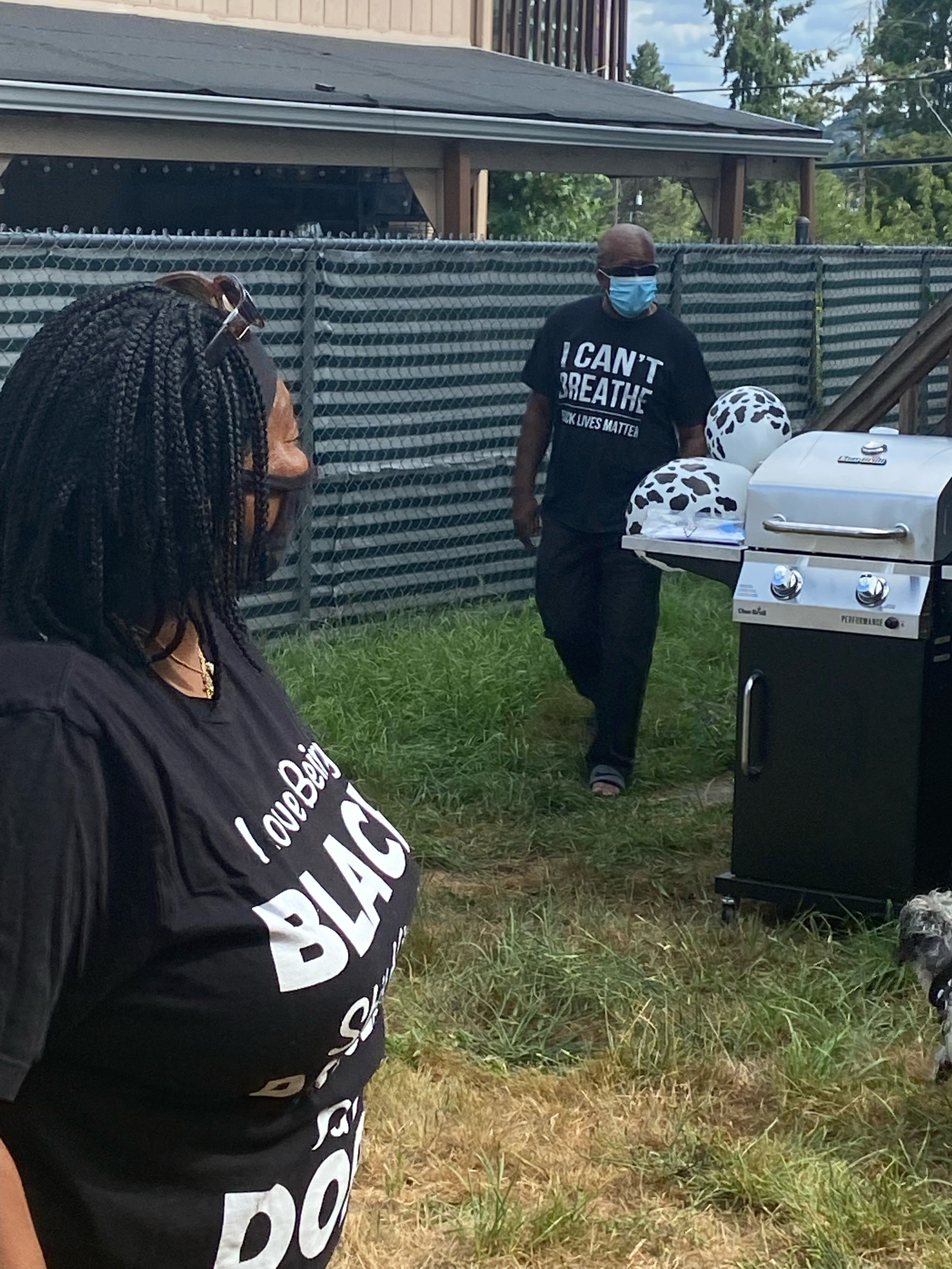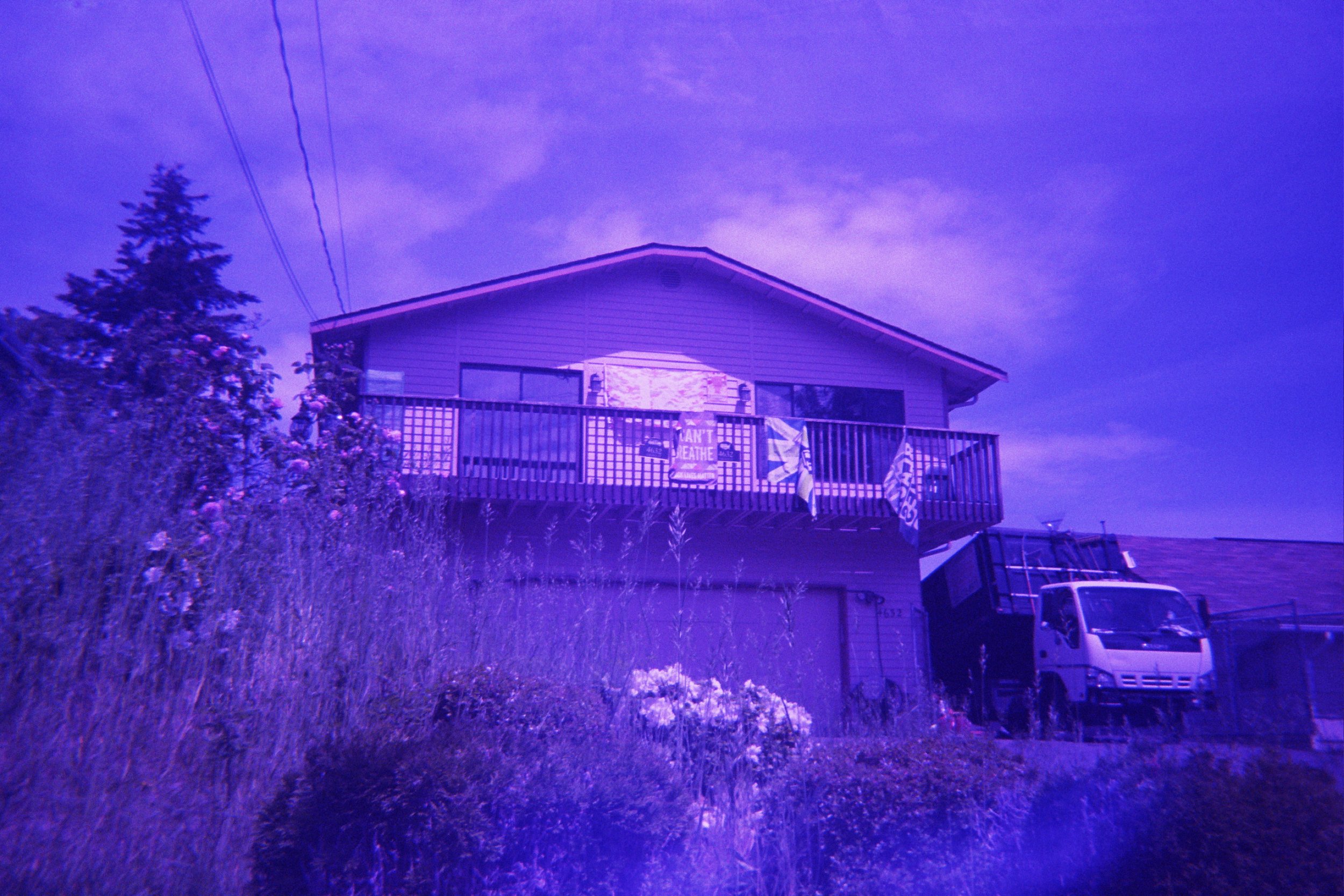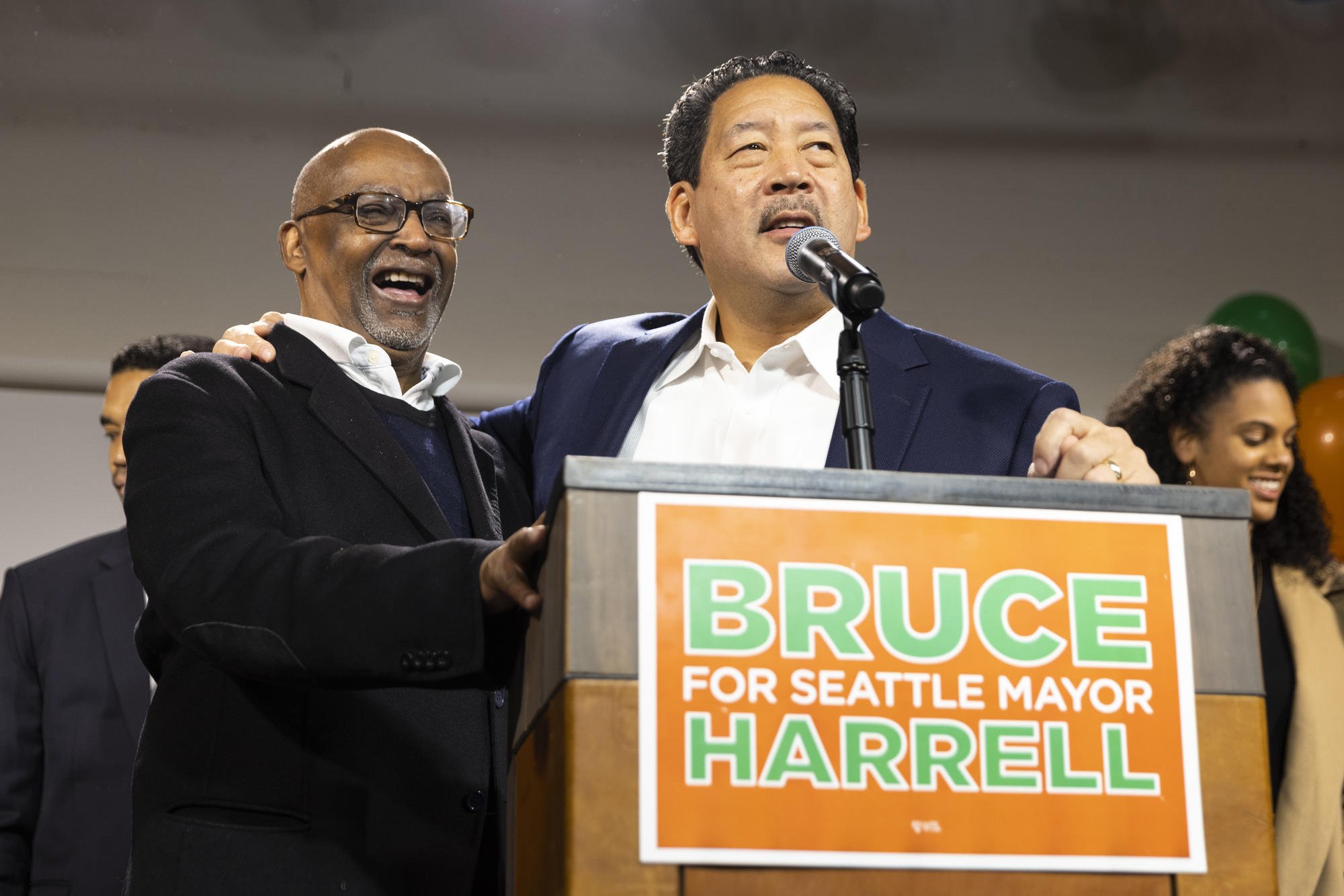Seattle’s Black Problem
One Couple’s Perspective on
The Black Experience in Seattle
Reporting for Social Change - 06/08/22
The Black Experience cannot be generalized, however, there is at least one constant—discrimination, inequity, and hatred for Blackness and Black people persists. The same is true for Black Seattleites.
According to Seattle and King County Public Health, across the lifespan, Black residents in Seattle and King County face systemic racism and disadvantages that disproportionately impact physical, mental, and social health as well as the educational and economic opportunities of Black communities.
Queer Cowboy Party, 2021 - Photo by: Genesis
Seattle has long boasted a reputation of inclusivity, liberalism, and empathy, but these characteristics have never applied to or served the Black community. From The Peterson’s perspective, this has always been the case for Black Seattleites.
Lawanna and Larry Peterson have lived in South Seattle together for 30 years—35 and 58 years independently—raising children, grandchildren, and a great-grandchild.
I arrived at their custom, Black-built home—The Petersons prefer spending their money on Black-owned businesses—and was met by Mrs. Peterson, frustrated at the lawn she told Mr. Peterson to take care of. As we walk through the house, to the backyard, I took in the photos, sports memorabilia, and furniture that made the space what it was. When we get outside, Mrs. Peterson shows me her ‘Outdoor Challenge MasterChef-esque’ kitchen setup and then lead me through the “door” of their large, bug-proof, chill zone. Mr. Peterson comes outside, fist bumps me, then takes a seat. Behind us, landscapers quietly work on a new garden bed.
After 30 years in their Rainier Valley home, Mrs. Peterson says one thing has kept them and other Black Seattleites in the city;
“Income. We have a two-income household—I've been on my job for 34 years, and he's been on his job for 44 years.” Mrs. Peterson works for Bank of America, while Mr. Peterson works as a transit operator for King County Metro.
Mr. Peterson followed, “if I wasn't putting away money, and we weren't in the financial position we're in and giving out praise and grace to the Lord—no, [we wouldn’t be here], we probably would have had to accept some of these offers we’ve gotten over the years [to sell the house].”
The Petersons are no stranger to the difficulties faced by Seattle’s Black community. Mr. Peterson remembers firsthand how the city segregated Blacks in designated districts.
“A lot of people have got so much hatred in their lives and in their existence that they don’t believe that others should have a right to live”
“When I first came here, there was a law in the city of Seattle that Black people could only live within certain borders. We couldn't go past McClellan Street. Blacks were limited to the Central District through McClellan,” he said.
From The Peterson’s perspective, the nonstop decline of The Black Experience in Seattle is heavily in part due to the city’s mayoral and municipal administrations—and more specifically, their lasting impacts on housing and homelessness. Mr. Peterson remembers Mayor Bruce and The Harrells as he thinks about growing up in the city—which is part of his frustration.
“I know Bruce Harrell, I know his family, and I question a lot of the things he's saying and doing. He should have a plan for the homeless situation because he knows the homeless situation. He knows that [the city and county] shut down or re-prioritized a lot of your public housing intended for Blacks. Rainier Vista, Holly Park, and Yesler Terrace were promised to us after construction or renovation but then [the city and county] gave priority to our East African brothers and sisters instead” he said.
While he acknowledges it’s always been an issue, Mr. Peterson points to the federal community crime prevention program “Weed and Seed” as a fire spreader. The program was implemented in Seattle by former Mayor Norm Rice in 1992. Current District Judge, Anne Harper—then Felony Supervisor for the Associated Counsel for the Accused—said of the program, “it's really a shame what we're doing, we're essentially locking away the young Black male population. It's hard to prove that they're being targeted, but the results are right there.” Mr. Peterson agrees.
Mayor Norm Rice (left) w/ Mayor Bruce Harrell (right) - Photo by: Jason Redmond for Crosscut
“That was to me a very, very racist program and it was a very racist situation. In my opinion, we were the weeds—the weeds were Black people. So we're gonna get rid of the weeds, we're gonna send them to places like Kent, Renton, Federal Way, and get them far away from the city of Seattle; then we’re gonna seed white people. So the homelessness problem was created by each one of [Seattle’s] former mayors and council members. Sam Smith (first Black city council member, 1922-1995), Ron Sims (former King County Executive, 1948-) were good guys but they went along with these programs, they all sold out The Black Experience,” Mr. Peterson said.
As Black Seattleites are forced out of the city, jailed, or killed, the idea of returning to their historically Black neighborhoods is unimaginable. Throughout the decades, the Black population in Seattle has dwindled and stagnated, but today, it continues to decline. According to the U.S. Census of 2018, as Seattle’s general population increased, the percentage of Black residents fell to 6.8%. In 1970, Black people made up 75% of Seattle’s Central District, today it’s closer to 15%.
To The Petersons, this centuries-long rejection and hatred for Blackness and Black people is plain to see—and always has been.
“They don't want to never talk about the real causes. Black people have every reason in the world to sit back and say, ‘because of socio-economic problems, we are depressed and we are drug addicts.’ But the biggest thing is that the majority of us are not on drugs, the majority of us are not criminals, the majority of Black people do not want to steal; but because of economics, and the pressure of society we do these things and we continue to do them to The Black Experience,” they said.
Seattle has only become less accepting of Black people. Political and social progress suggest change, but for Seattle’s Black community, the situation worsens or stays the same.
“It's been a long time coming. I don't know, I don't think there ever will be change [that would be] positive on our side. I don't think it ever will be—but you can’t give up hope,” Mrs. Peterson said.
Black people have faced generations worth of discrimination and trauma, the same goes for those in Seattle. The Petersons do what they can to foster growth and community among their Black family and friends; and what they can’t change, they don’t focus on.
“We've been marching and demonstrating for over—I'm 66 years old, started when I was 14—so 52 years. For 52 years, I've been trying to educate our people and to do the right things. I tried tremendously with my kids, and I'm still working with my grandkids, my great-grandson. Because of my religious beliefs, I believe that a lot of these things that you can't change and you have to accept happen as part of the plan we can’t see,” Mr. Peterson said.


